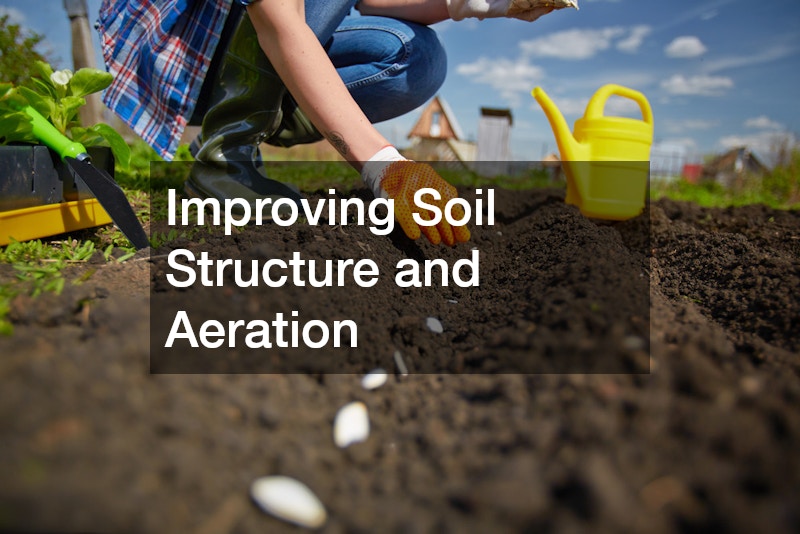Incorporating mulch into your landscape can be a game-changer for maintaining both the health and aesthetics of your garden. This article will explore the top benefits of using mulch and how it can transform your outdoor spaces. Whether you’re a seasoned gardener or a gardening novice, understanding the role of mulch can significantly enhance your gardening practices.
Enhancing Soil Fertility with Nutrient-Rich Mulch
Mulch can significantly boost soil fertility by gradually breaking down and releasing essential nutrients that plants need for healthy growth. Organic mulches, such as bark, straw, and leaves, decompose over time, adding humus to the soil. This process not only enriches the soil but also enhances its capacity to hold and distribute necessary nutrients effectively.
By incorporating mulch into your garden, you create a dynamic, nutrient-rich environment that supports vigorous plant growth. As the mulch decomposes, it releases nitrogen, phosphorus, and potassium—all vital elements for plant development. This natural nutrient input can reduce the need for synthetic fertilizers, promoting an organic approach to gardening.
Access to a consistent nutrient supply through mulching can lead to strong root systems and robust plant health. Moreover, mulch helps to stabilize soil pH levels, creating an optimal environment for nutrient absorption. Therefore, utilizing mulch as a soil amendment can be a sustainable strategy for enriching soil fertility in your garden.
Improving Soil Structure and Aeration
Mulch plays a vital role in improving soil structure, aiding in better root penetration and enhancing soil aeration for optimal plant health. By covering the soil, mulch helps prevent compaction, allowing plant roots to grow without restriction. This improved soil structure is crucial for maintaining healthy root systems and overall plant vigor.
The presence of mulch also aids in improving drainage, preventing water from pooling around plant roots and reducing the risk of root rot. Additionally, mulch facilitates gas exchange by allowing oxygen to reach root zones, which is essential for respiration and nutrient uptake. Well-aerated soil ensures that plants can access the air necessary for their metabolic processes.
Mulch can also moderate soil temperature, providing a more stable environment for root systems. During hot summer months, mulch keeps the soil cooler, while in winter, it provides insulation. This contributes to enhanced soil dynamics, enabling plants to thrive in various climatic conditions by promoting consistent soil aeration and temperature regulation.
Simplifying Weed Management Practices
Through its suppression capabilities, mulch simplifies weed management, reducing labor and chemical intervention in your landscape maintenance. Traditional weed control methods often require constant vigilance and effort, but mulching offers a more straightforward, low-maintenance solution. By minimizing the growth of new weeds, mulch reduces the time and effort required for manual weed removal.
As mulch diminishes the need for chemical herbicides, it supports eco-friendly gardening by lowering synthetic chemical usage. This is particularly beneficial in gardens near water sources or wildlife habitats, where chemical runoff can have detrimental effects. With mulch, gardeners can achieve effective weed control while prioritizing environmental health and safety.
Furthermore, as mulch decomposes, it continues to enrich the soil, enhancing the garden’s health and vitality. This multifaceted impact simplifies garden maintenance and contributes to more sustainable gardening practices. As a result, mulch can be a key component in creating a low-effort and environmentally responsible garden landscape.
Improving Garden Aesthetics and Order
By effectively managing weed growth, mulch helps maintain a cleaner, more orderly garden appearance, enhancing landscape beauty. A well-mulched garden appears tidy and uniform, providing an attractive backdrop for your plants. The visual appeal of a mulched landscape can increase property value and create inviting outdoor spaces.
Mulch is available in a variety of materials, colors, and textures, allowing gardeners to tailor their garden’s aesthetic to personal preference. From natural tones to dyed options, mulch can complement any landscape design, adding depth and interest. This versatility makes mulch an appealing choice for enhancing both the functionality and appearance of your garden.
Moreover, by suppressing unsightly weeds, mulch allows the garden’s design elements to shine, from plant groupings to garden features. A well-maintained and visually pleasing garden can provide a sense of order and satisfaction for homeowners and visitors alike. Therefore, mulch is an invaluable tool for cultivating beautiful and orderly garden spaces.
Utilizing mulch in your landscape offers myriad benefits, from improving soil health and moisture retention to effective weed control. Embracing mulch as an integral component of your gardening strategy can lead to a healthier and more beautiful garden environment. By enhancing nutrition, conserving water, and suppressing weeds, mulch serves as a multifunctional amendment that promotes sustainable and eco-friendly gardening practices.
With its ability to improve soil structure, support beneficial microorganisms, and contribute to effective moisture management, mulch plays a crucial role in garden maintenance. Its diverse benefits align with a sustainable approach to gardening, reducing reliance on chemical interventions and promoting ecological health. Ultimately, incorporating mulch into your garden landscapes supports a thriving, well-balanced ecosystem that benefits both plants and people.
Whether you’re focused on boosting fertility or creating a more visually appealing garden space, mulch is a practical, cost-effective solution. Its wide-ranging benefits demonstrate that mulch is not just an afterthought but a foundational element of successful garden management. By embracing the advantages of mulching, gardeners can ensure vibrant, resilient landscapes that flourish for years to come.
.






